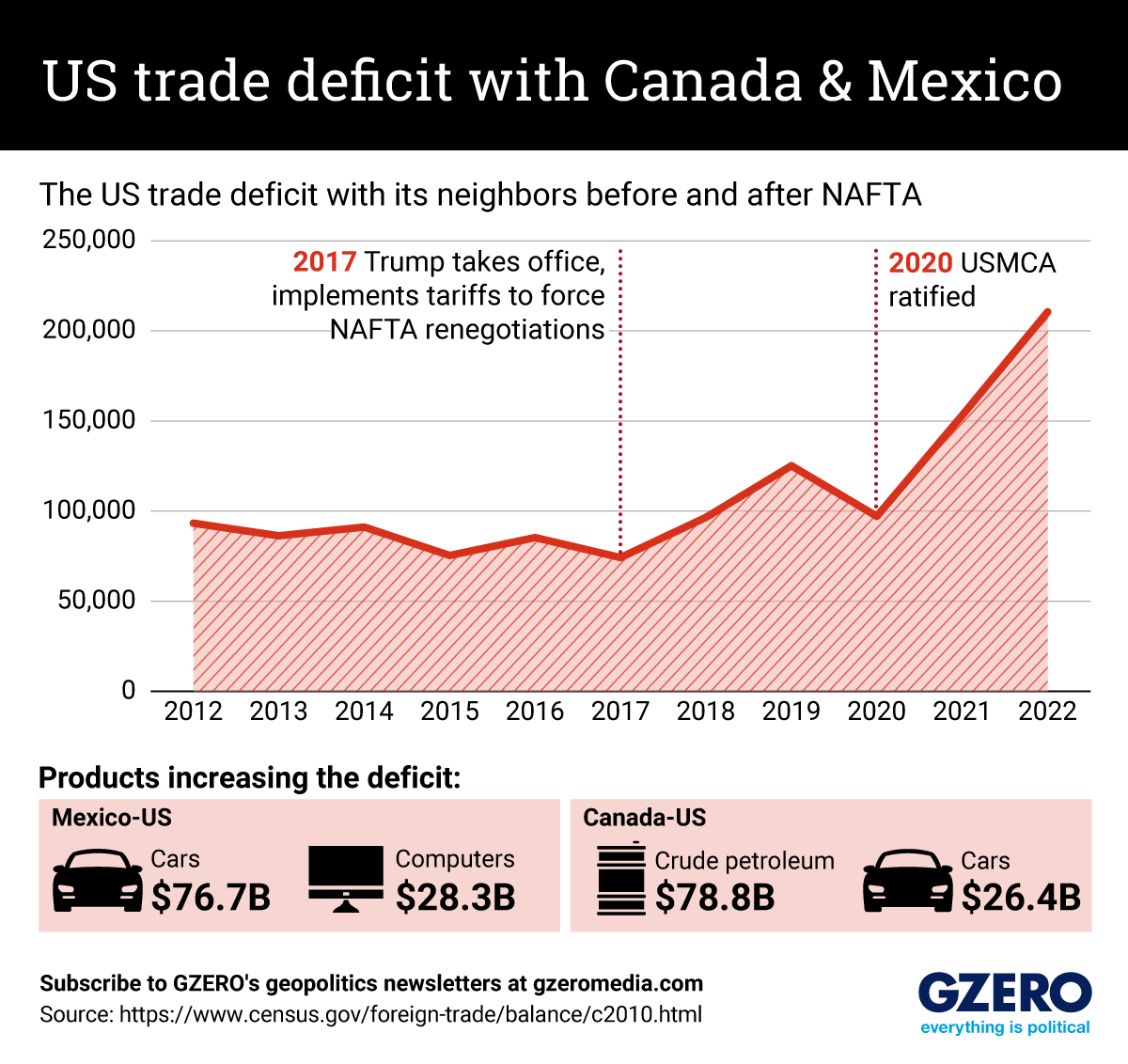June 15, 2023
In 2016, Donald Trump successfully mobilized his base around NAFTA being “the worst trade deal ever signed.” He argued that US industries were being suppressed by trade deficits with Canada and Mexico, and he promised to disband the agreement if elected.
Mexico was also under pressure for renegotiation. While NAFTA turbocharged Mexican agricultural and manufacturing sectors, many thought Mexico was too reliant on the US importing its products, putting its economy at the mercy of international food prices and exchange rates.
When Trump won the presidency, he kept his promise and called for the trade deal to be renegotiated. The promise he didn’t keep: lowering the trade deficit.
The law of the land now is the United States-Mexico-Canada Agreement, or USMCA, which still gives Canada and Mexico sweeping access to export products to the US. Trade deficits aren’t inherently negative as they help consumers benefit from cheaper goods, but domestic industries do struggle in the face of increased competition.
We look at how the US trade deficit with Mexico and Canada has grown since NAFTA was disbanded.
More For You
- YouTube
On GZERO World, Finnish President Alexander Stubb says that Ukraine and its NATO allies are aligned on a path to a ceasefire but warns that Vladimir Putin will drag out the war, not because he thinks he’ll win… but because he knows he’ll lose.
Most Popular
On Thursday, Ukraine’s energy minister said that the power grid suffered its most difficult day since Russia’s full-scale invasion in 2022.
Haitian soldiers keep a watch outside the venue where businessman Laurent Saint-Cyr is set to be designated as president of Haiti's Transitional Presidential Council (CPT), in Port-au-Prince, Haiti, August 7, 2025.
REUTERS/Fildor Pq Egeder/File Photo
On Friday, US officials warned the transitional council in charge of Haiti not to remove interim Prime Minister Alix Didier Fils-Aimé, ahead of a deadline for the council to step down on Feb. 7.
Moldovan President Maia Sandu speaks during a Council of Europe diplomatic conference to launch the International Claims Commission for Ukraine, aimed at handling compensation claims related to Russia's war in Ukraine, in The Hague, Netherlands, December 16, 2025.
REUTERS/Piroschka van de Wouw
The president of the tiny eastern European country has suggested possibly merging with a neighbor.
© 2025 GZERO Media. All Rights Reserved | A Eurasia Group media company.
